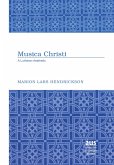Through a comparison of their aesthetics and hermeneutics, this book reveals that both Gadamer and Balthasar reject an autonomous, neutral, distanced starting point for interpretation. Instead, they advocate a dialogical model in which interpreters allow themselves to be engaged by the truth of the text or artwork at hand. Both thinkers use aesthetic categories to describe this model of interpretation (such as the neo-Platonic category of radiance) and both reflect a disclosure-concealment theory of truth. In recognizing that interpreters are part of an unfolding history and that the examination of historical texts cannot be done from a neutral standpoint, they both acknowledge that textual interpretation must contain the dimension of dialogue with the past truths. Significantly, Balthasar incorporates these aesthetic and hermeneutical categories into an explicitly Trinitarian salvation-history framework, which is absent in Gadamer's thought.
This book concludes with the implications of an aesthetic hermeneutics for contemporary Roman Catholic theology and its dialogue with various schools of thought (philosophical and religious), arguing that the concrete, particular forms of Christianity as expressed in Roman Catholicism cannot be bracketed or evacuated by Catholic theologians in the interest of achieving consensus in religious matters. To the contrary, it is precisely in these forms that we believe that God's revelation takes place.
This book concludes with the implications of an aesthetic hermeneutics for contemporary Roman Catholic theology and its dialogue with various schools of thought (philosophical and religious), arguing that the concrete, particular forms of Christianity as expressed in Roman Catholicism cannot be bracketed or evacuated by Catholic theologians in the interest of achieving consensus in religious matters. To the contrary, it is precisely in these forms that we believe that God's revelation takes place.








